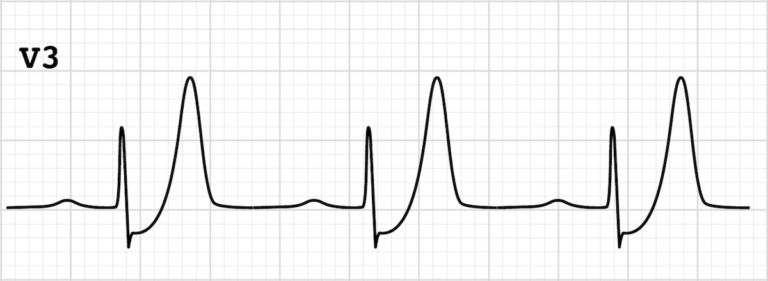Hemodynamic effects of milrinone include: increase CO, increased HR and this effect on systemic vascular resistance
Decrease
Vibration of the anterior leaflet of the mitral valve heard during diastole
Austin Flint murmur
78yoF presents to an OSH with acute anterior STEMI. She is 4-hr away from a PCI capable center. She is given ASA and thrombolytic. What is the name and dose of P2Y12 that should be given?
Clopidogrel 75mg
In patients with HFrEF <40% from a MI, eplerenone decreased both cardiovascular and all-cause mortality when compared to placebo
EPHESUS
Autosomal dominant inheritance pattern and the ECG finding below are characteristics of this condition
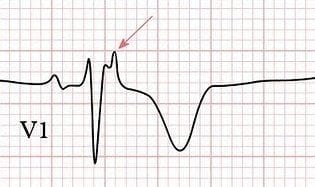
Arrhythmogenic right ventricular dysplasia / cardiomyopathy (ARVD/C)
40yoM with recurrent pericardial inflammation is taken for RHC due to worsening renal function. The RV tracing below is suggestive of this diagnosis.
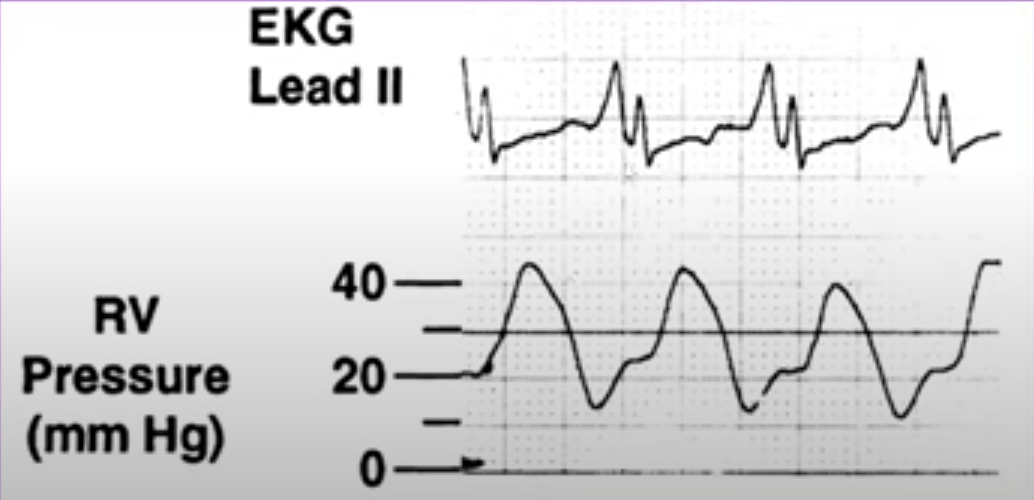
Constrictive Pericarditis
Abrupt distention and quick collapse of the carotid artery
Corrigan's Pulse
This medication is commonly prescribed for claudication symptoms but should not be use in CHF due to phosphodiesterase inhibition
Cilostazol
In patients with ICM EF<35%, CABG led to a mortality benefit at 10 years when compared to OMT
STITCH
Congenital disorder associated with this characteristic ECG finding

Brugada Syndrome
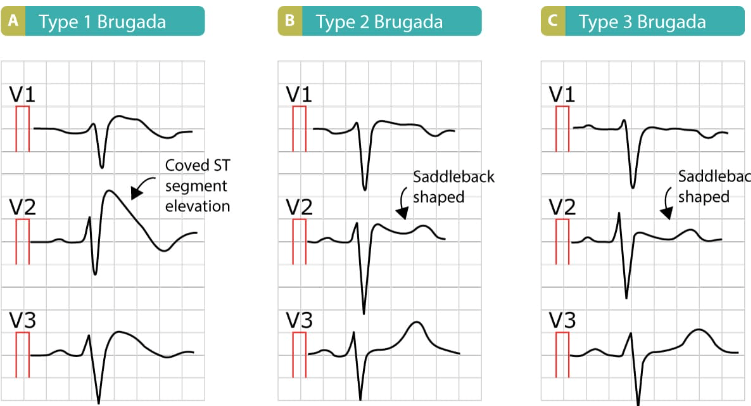
A decrease of SBP of >10 mmHg during normal, quiet inspiration
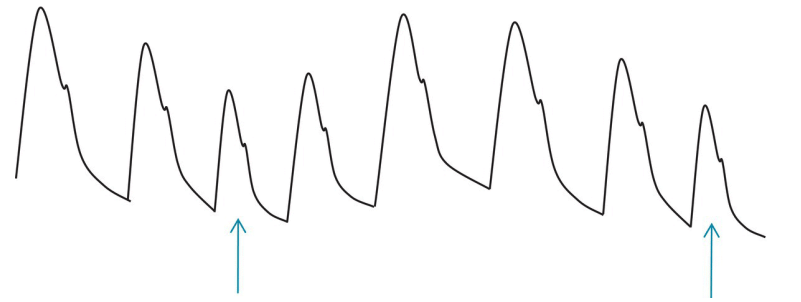
Pulsus paradoxus
Systolic pulsation of uvula seen that can be seen in patient's aortic regurgitation
Mueller's sign
Preferred SGLT2i in patients with DM II and atherosclerotic heart disease
Empagliflozin
In patients with NHYA II-IV HFrEF (<35%) and comorbid AFib, catheter ablation improved survival and led to improvement in EF when compared to pharmacologic rate or rhythm control
CASTLE-AF
PCT rushes into your office due to frustration with this ECG being "wrong"
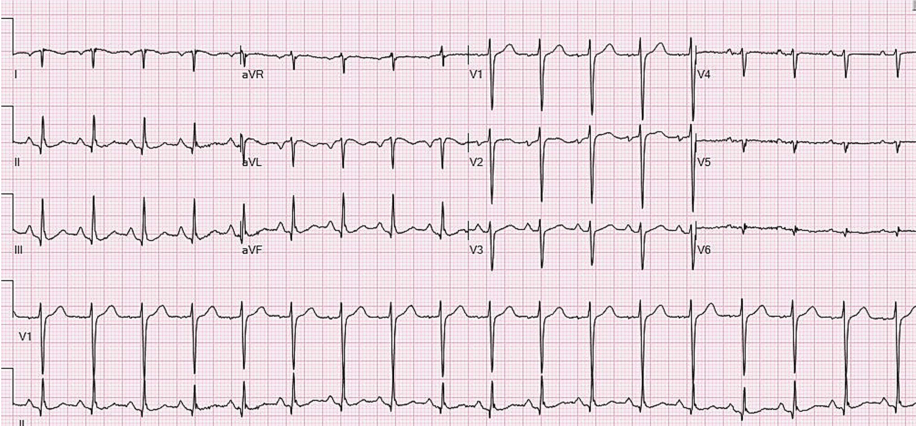
Dextrocardia
Distinguishing between severe AS and HOCM, this is the invasive sign seen on simultaneous LV and AO pressure post-PVC
Brockenbrough-Braunwald-Morrow Sign

Visualization of capillary pulsations upon light compression applied to the tip of the fingernail bed associated with severe aortic regurgitation
Quinke's sign
Mechanism of action for Mavacamtem, which was shown in EXPLORER-HCM trial to improve exercise compact and decrease LVOT gradient in patients with HOCM
Cardiac myosin inhibition
Pts with HFrEF decompensation, continuation of outpatient BB led to no difference in mortality, hospital stay, or symptoms but did increase BB prescription at discharge
B-CONVINCED
This EKG finding can be seen in patients on this Na/K ATPase inhibitor is frequently referred to as:
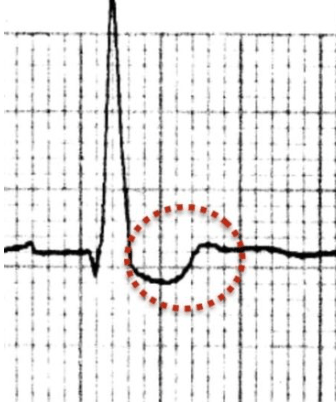
Salvador Dali Sign
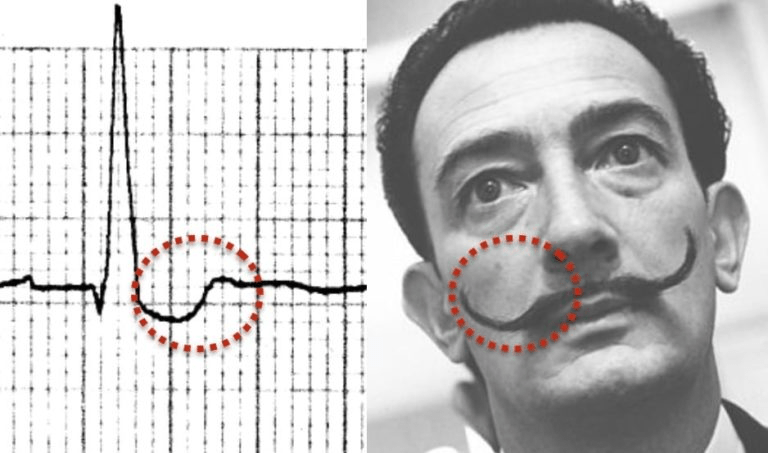
In patients with severe aortic stenosis, the tracing below can be seen during LV catheter pullback
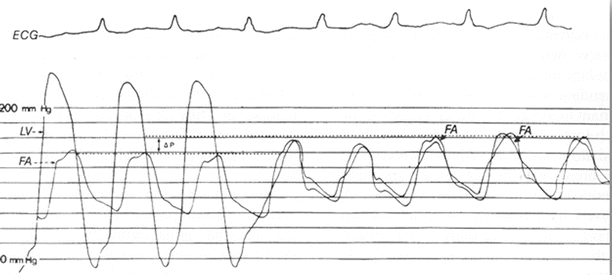
Carabello Sign
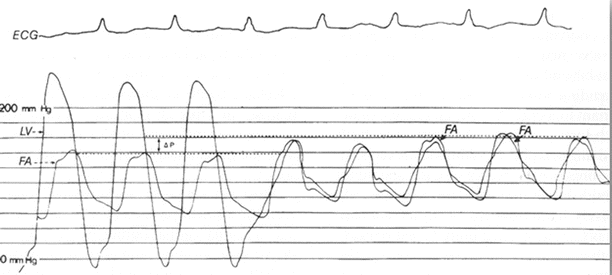
First described in 1909, wide circulatory flow changes in the iris blood vessels due to high pulse pressure and large stroke volume, thereby resulting in systolic constriction and diastolic dilation of the pupil
Landolfi's Sign
Ticagrelor
*Cangrelor decreases clopidogrel & prasugrel absorption by "receptor binding competition"
MADIT-II
First reported in 2008, this pattern is considered and anterior STEMI equivalent
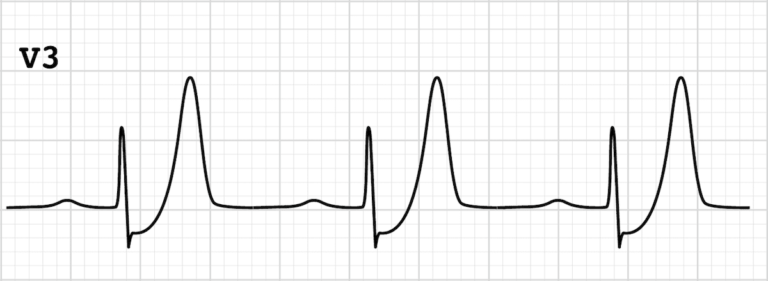
De Winter
